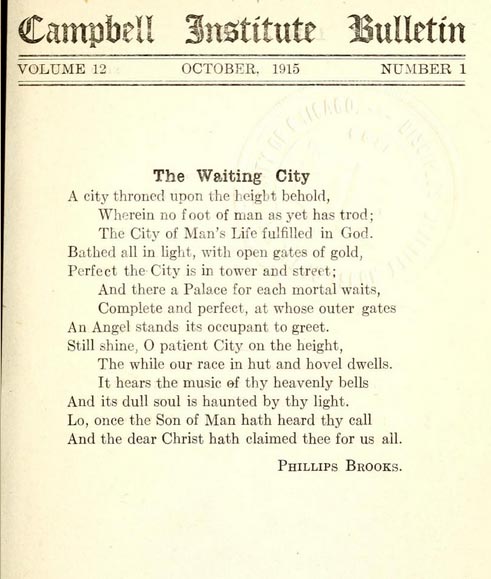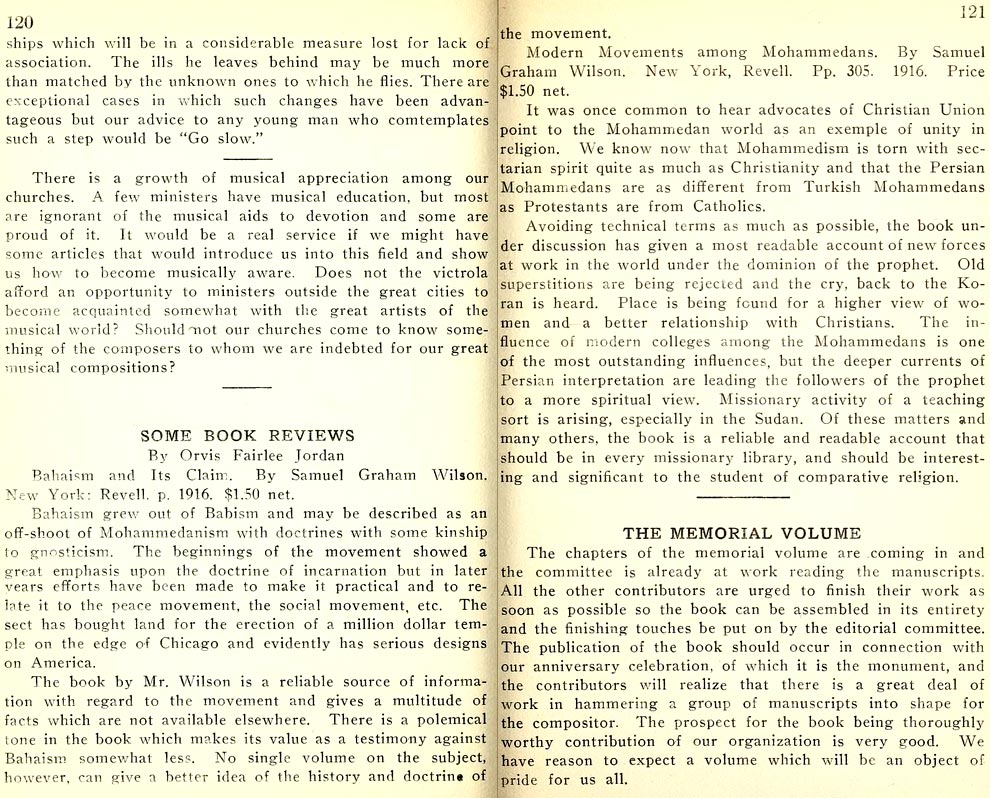
|
|
Abstract: Short reviews of two early anti-Bahá'í books by a Christian missionary. Notes: This document is online in a variety of formats at archive.org. |
Bahá'ísm and Its Claims and Modern Movements among Mohammedans, by S. G. Wilson:
Reviews
by Orvis Fairlee Jordan
published in Campbell Institute Bulletin, 12:1, pages 120-1211915-10
1. Text
Bahaism and Its Claim. By Samuel Graham Wilson. New York; Revell. p. 1916. $1.50 net.Bahaism grew out of Babism and may be described as an off-shoot of Mohammedanism with doctrines with some kinship to gnosticism. The beginnings of the movement showed a great emphasis upon the doctrine of incarnation but in later years efforts have been made to make it practical and to relate it to the peace movement, the social movement, etc. The sect has bought land for the erection of a million dollar temple on the edge of Chicago and evidently has serious designs on America.
The book by Mr. Wilson is a reliable source of information with regard to the movement and gives a multitude of facts which are not available elsewhere. There is a polemical tone in the book which makes its value as a testimony against Bahaism. somewhat less. No single volume on the subject, however, can give a better idea of the history and doctrine of the movement.
Modern Movements among Mohammedans. By Samuel Graham Wilson. New York, Revell. Pp. 305. 1916. Price $1.50 net.
It was once common to hear advocates of Christian Union point to the Mohammedan world as an example of unity in religion. We know now that Mohammedism is torn with sectarian spirit quite as much as Christianity and that the Persian Mohammedans are as different from Turkish Mohammedans as Protestants are from Catholics.
Avoiding technical terms as much as possible, the book under discussion has given a most readable account of new forces at work in the world under the dominion of the prophet. Old superstitions are being rejected and the cry, back to the Koran is heard. Place is being found for a higher view of women and a better relationship with Christians. The influence of modern colleges among the Mohammedans is one of the most outstanding influences, but the deeper currents of Persian interpretation are leading the followers of the prophet to a more spiritual view. Missionary activity of a teaching sort is arising, especially in the Sudan. Of these matters and many others, the book is a reliable and readable account that should be in every missionary library, and should be interesting and significant to the student of comparative religion.
2. Page scans


|
|